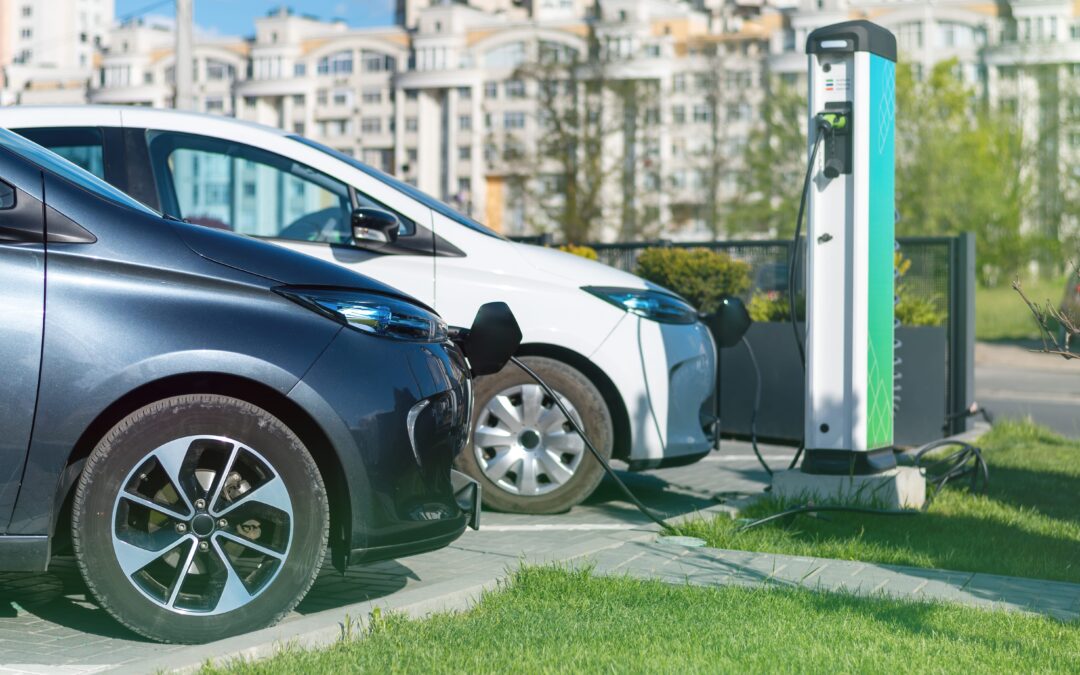Balancing the need for the power of electricity with the balance of power between members of associations and their associations
On June 9, 2022, RCW 64.34.395, and its counterparts, RCW 64.32.290, RCW 64.38.062, and RCW 64.90.513, were enacted to enable the installation of electric vehicle charging stations (“EVCS”) in condominiums and homeowners associations, while protecting the associations and their members from bearing the costs required for such installation, as well as the costs of continued maintenance and electricity required for the functioning of such charging stations. The language of these statutes is meant to balance the right of owners to install these renewable energy devices with the right of the associations to impose reasonable restrictions on the installation and/or use of an electric vehicle charging station.
Using RCW 64.34.395, the applicable EVCS statute for condominiums created after July 1, 1990 and before July 1, 2018, as our guide, Section 64.34.395(1)(a) states:
A unit owners’ association may not adopt or enforce a restriction, covenant, condition, bylaw, rule, regulation, provision of a governing document, or master deed provision that:
(i) Effectively prohibits or unreasonably restricts the installation or use of an electric vehicle charging station in compliance with the requirements of this section and for the personal noncommercial use of a unit owner, within the boundaries of a unit or in a designated parking space; or
(ii) Is in conflict with the provisions of this section.
Section (11) of RCW 64.34.395 provides the definitions for this statute:
(a) “Designated parking space” means a parking space that is specifically designated for use by a particular unit owner, including a garage, a deeded parking space, and a parking space in a limited common element that is restricted for use by one or more unit owners.
(b) “Electric vehicle charging station” means a station that delivers electricity from a source outside an electric vehicle into one or more electric vehicles. An electric vehicle charging station may include several charge points simultaneously connecting several electric vehicles to the station and any related equipment needed to facilitate charging plug-in electric vehicles.
(c) “Reasonable restriction” means a restriction that does not significantly increase the cost of an electric vehicle charging station or significantly decrease its efficiency or specified performance.
Nothing in RCW 64.34.395, or the comparable EVCS provisions of the other condominium and homeowners association statutes, prohibits an association from imposing reasonable restrictions on electric vehicle charging stations. However, it is the policy of Washington state to promote, encourage, and remove obstacles to the use of electric vehicle charging stations. As such, the legislature, with input from stakeholders, including representatives of organizations seeking to protect the interests of condominium and homeowners associations[1], environmental groups, and others set out to balance these goals.
In order to preserve the association regimes of The Condominium Statute, the Horizontal Property Regimes Statute, the Homeowners Association Statute and the Washington Common Interest Ownership Act (WCIOA), in which an owner owns their individual lot or unit, as well as their proportional share of the common elements and common areas, the statutes speak to the locations where the installation of an EVCS are allowed:
(4) If approval is required for the installation or use of an electric vehicle charging station, a unit owners’ association must approve the installation within the boundaries of a unit or in a designated parking space if the installation is reasonably possible and the unit owner agrees in writing to
Emphasis Added. The impact of reduced space for other things is placed on the individual condominium unit owner or individual homeowner.
Additionally, the costs related to insurance for the EVCS, the electricity usage, the required means to facilitate payment for the electricity, the costs to obtain any permit or approval for an electric vehicle charging station, as required by the local government in which the condominium association or homeowners association is located, as well as the costs to comply with all relevant building codes, safety standards, and applicable health and safety standards is all to be borne by the unit owner or lot owner.
The statutes also contemplate the potential departure of the unit owner or homeowner who installed the EVCS. Section 6(b) allows for the removal of the EVCS by the installing owner at the owner’s cost. Section 7 requires disclosure of the details of the EVCS by the unit owner. Section 8 requires the ongoing maintenance and repair of the EVCS by the unit owner.
While a unit owner or lot owner may not install their EVCS in the common elements or common areas of the association property, the association itself may install an EVCS in common elements or common areas. If the association does install the EVCS, it must develop appropriate terms for the use of the EVCS. Finally, if an association willfully violates the statutes governing the installation of an EVCS, it can be fined up to $1,000, and a court is mandated to award prevailing party attorneys’ fees.
Electric vehicles are becoming more common in every city and in every facet of transportation. As electric vehicles find their way into condominium garages and homeowners association parking spaces, the governance of electric vehicle charging stations has begun, striking a balance between the need for these clean energy power supplies, while maintaining the balance between the members of condominium associations and homeowners associations and those members’ associations.
[1] WSCAI (Washington Chapter of the Community Association Institute)

Recent Comments